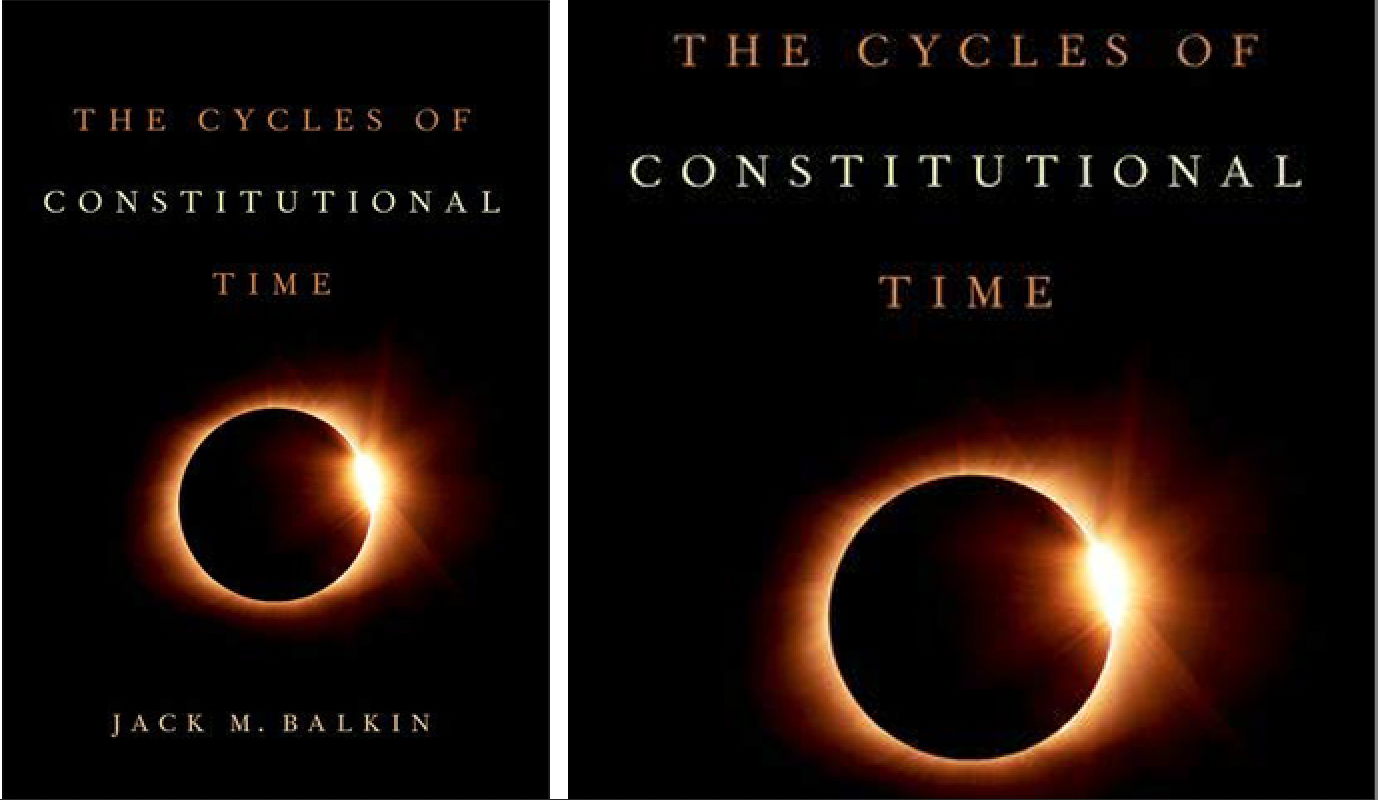School of Law Author Series 2020/21. Seminar 13 with Professor Jack Balkin.
School of Law Author Series 2020/21 - Conversations with Donna Lyons. Seminar 13 with Professor Jack Balkin.
School of Law Author Series 2020/2021 - Conversations with Donna Lyons together with Trinity Centre for Constitutional Governance (Tri.CON). Seminar 13 with Professor Jack Balkin.
Professor Jack Balkin (Yale Law School) will speak at Trinity College Dublin on 30 November, on his new book, ‘The Cycles of Constitutional Time’. The School of Law is delighted to be co-hosting this event with the Trinity Centre for Constitutional Governance (Tri.CON).
Date and time: 3 - 4pm (Dublin) / 10 - 11am (EST), Monday, 30 November 2020
Attendees can join the webinar directly via Zoom and the event will be simultaneously live-streamed on the Law School Facebook page. This event is free and open to all and there will be an opportunity for Q&A. The webinar can accommodate 100 attendees and participants will be admitted on a first come, first served basis. If the webinar fills to capacity, it will be possible to watch the Facebook Live Stream, and a recording will also be made available following the event. We look forward to seeing you there!
Jack M. Balkin is Knight Professor of Constitutional Law and the First Amendment at Yale Law School. He is the founder and director of Yale's Information Society Project, an interdisciplinary center that studies law and new information technologies. He also directs the Abrams Institute for Freedom of Expression, and the Knight Law and Media Program at Yale.
Professor Balkin received his Ph.D in philosophy from Cambridge University, and his A.B. and J.D. degrees from Harvard University. Professor Balkin is a member of the American Academy of Arts and Sciences and the author of over a hundred articles in different fields, including constitutional theory, Internet law, freedom of speech, reproductive rights, jurisprudence, and the theory of ideology. He has written widely on legal issues for such publications as the New York Times, the New England Journal of Medicine, the American Prospect, the Atlantic Online, Washington Monthly, the New Republic Online, and Slate. His books include Living Originalism; Constitutional Redemption: Political Faith in an Unjust World; The Constitution in 2020 (with Reva Siegel); Processes of Constitutional Decisionmaking (5th ed. with Brest, Levinson, Amar, and Siegel); Cultural Software: A Theory of Ideology; The Laws of Change: I Ching and the Philosophy of Life; What Brown v. Board of Education Should Have Said; and What Roe v. Wade Should Have Said.
About 'The Cycles of Constitutional Time’:
What will happen to American democracy? The nation's past holds vital clues for understanding where we are now and where we are headed. In The Cycles of Constitutional Time, the eminent constitutional theorist Jack Balkin explains how America's constitutional system changes through the interplay among three cycles: the rise and fall of dominant political parties, the waxing and waning of political polarization, and alternating episodes of constitutional decay and constitutional renewal. If America's politics seems especially fraught today, it is because we are nearing the end of the Republican Party's political dominance, at the height of a long cycle of political polarization, and suffering from an advanced case of what he calls "constitutional rot." In fact, when people talk about constitutional crisis, Balkin explains, they are usually describing constitutional rot―the historical process through which republics become less representative and less devoted to the common good. Brought on by increasing economic inequality and loss of trust, constitutional rot threatens our constitutional system.
But Balkin offers a message of hope: We have been through these cycles before, and we will get through them again. He describes what our politics will look like as polarization lessens and constitutional rot recedes. Balkin also explains how the cycles of constitutional time shape the work of the federal courts and theories about constitutional interpretation. He shows how the political parties have switched sides on judicial review not once but twice in the twentieth century, and what struggles over judicial review will look like in the coming decades. Drawing on literatures from history, law, and political science, this is a fascinating ride through American history with important lessons for the present and the future.


